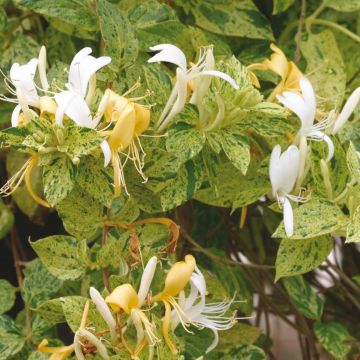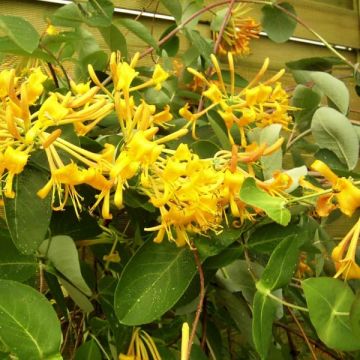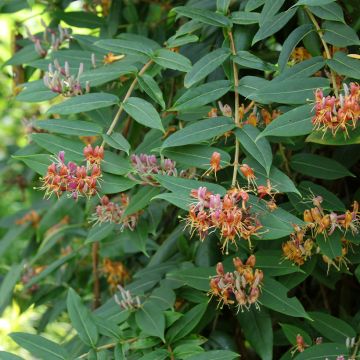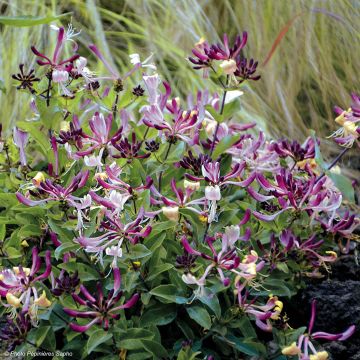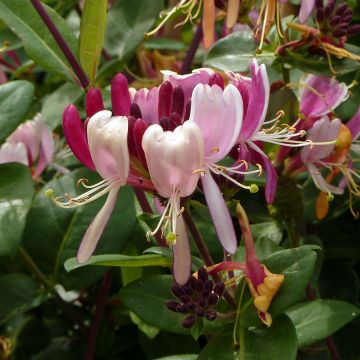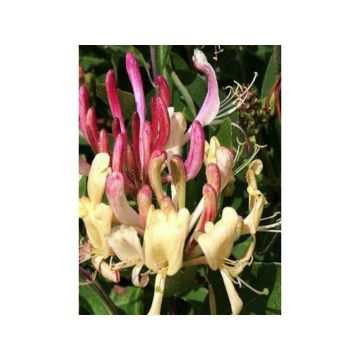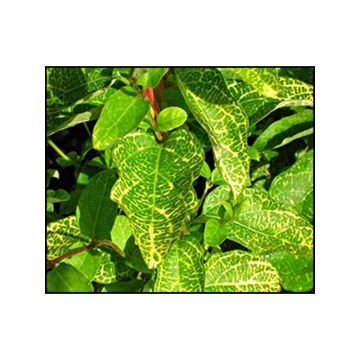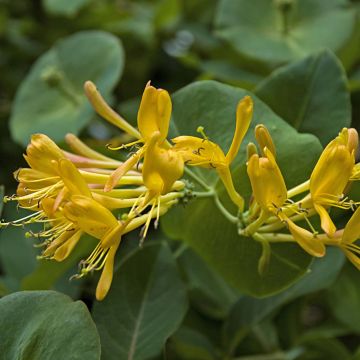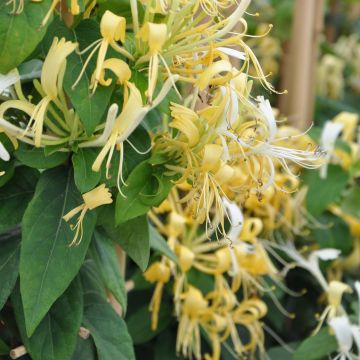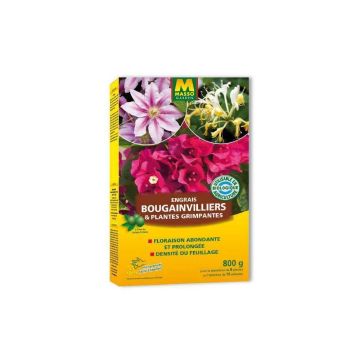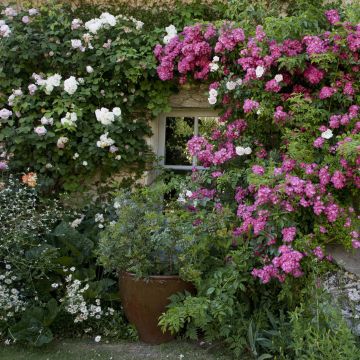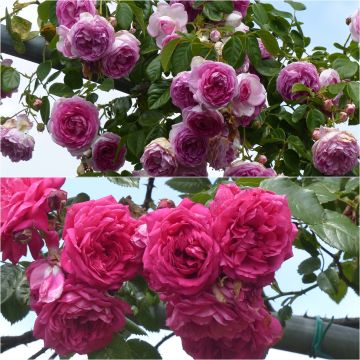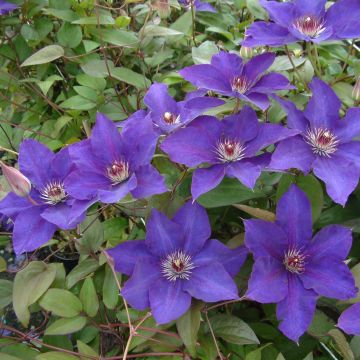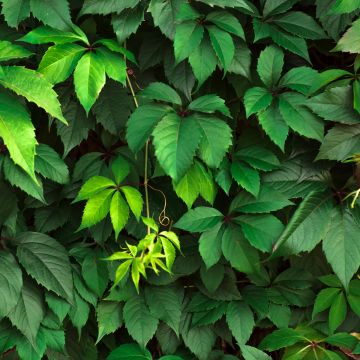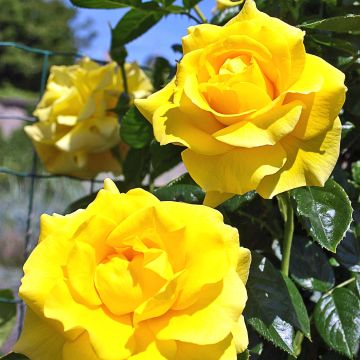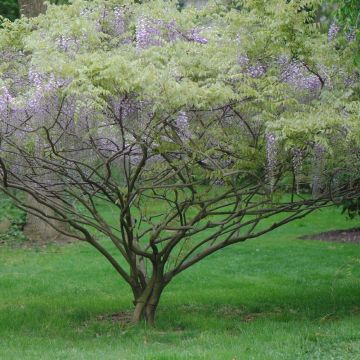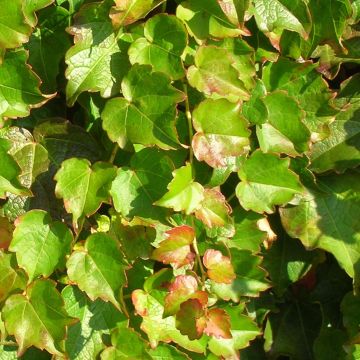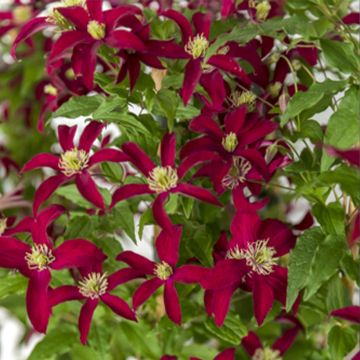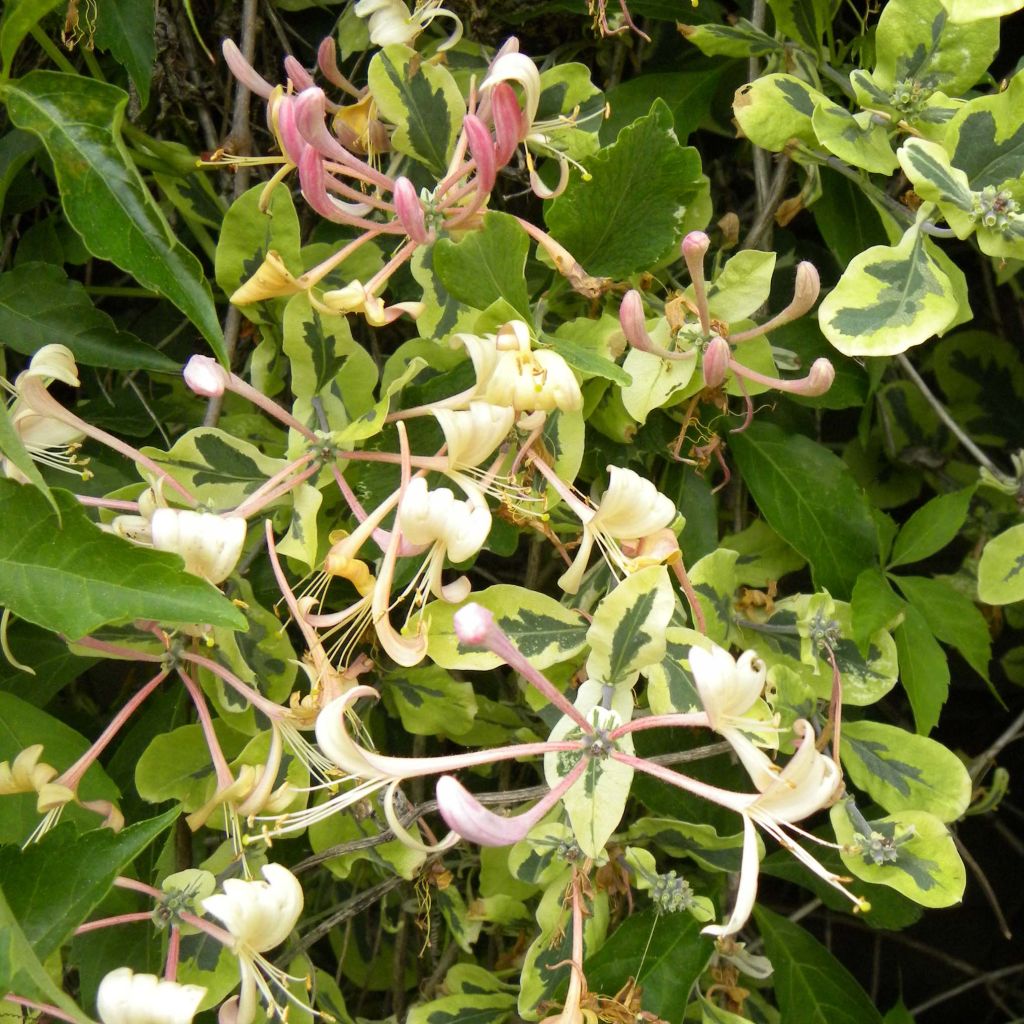

Lonicera caprifolium var. Italica Harlequin 'Sherlite'
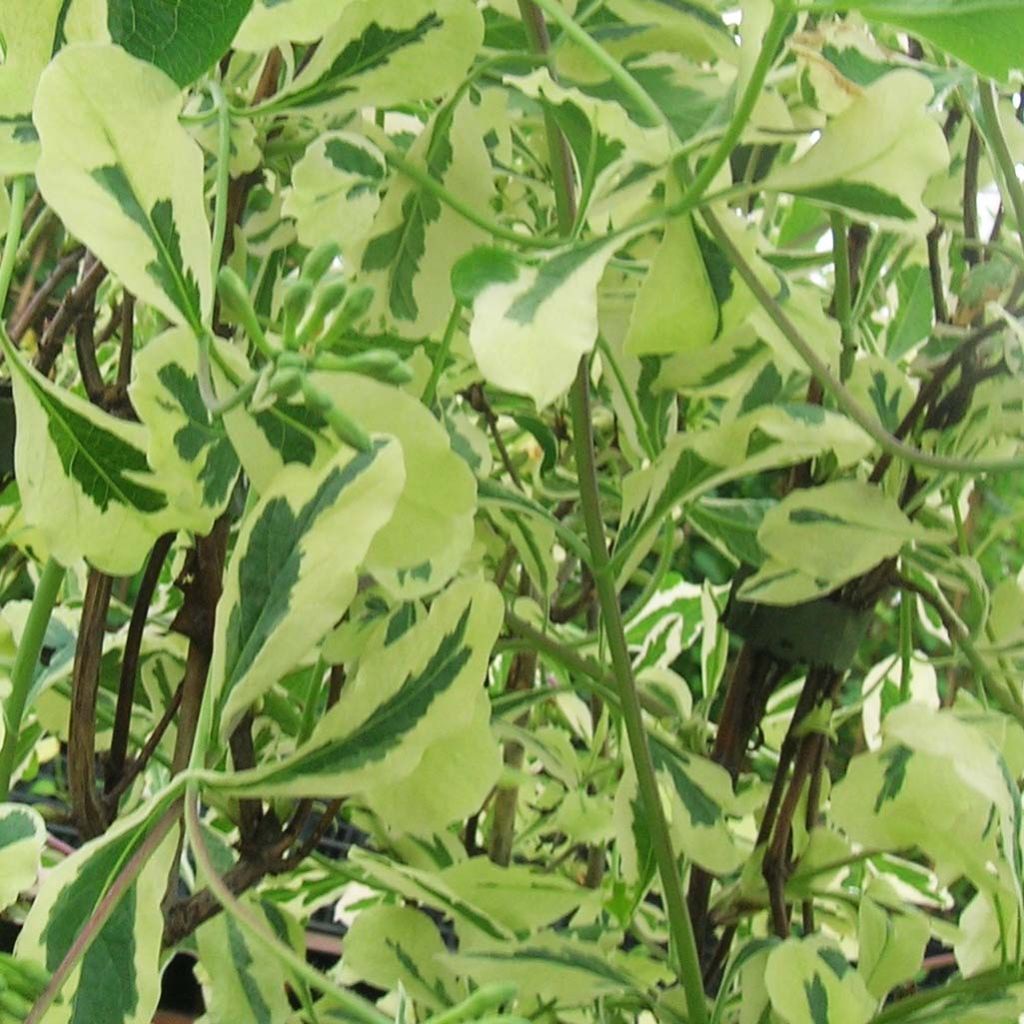

Lonicera caprifolium var. Italica Harlequin 'Sherlite'
Lonicera caprifolium var. Italica Harlequin 'Sherlite'
Lonicera caprifolium var. Italica Harlequin 'Sherlite'
Italian Honeysuckle, Italian Woodbine
Thanks to Hélène (order preparation & quality control) and Jenny (shipping service), the Lonicera 'Sherlite' I received appears to be healthy. Now, I'm waiting for it to take root in the ground, at the base of a camphor tree, for its spring growth...
Thierry, 25/01/2020
This item cannot be shipped to the selected country
Delivery charge from €5.90
Delivery charge from €5.90
Delivery to Corse prohibited
More information
Schedule delivery date,
and select date in basket
This plant carries a 6 months recovery warranty
More information
We guarantee the quality of our plants for a full growing cycle, and will replace at our expense any plant that fails to recover under normal climatic and planting conditions.
From €5.90 for pickup delivery and €6.90 for home delivery
Express home delivery from €8.90.
From €5.90 for pickup delivery and €6.90 for home delivery
Express home delivery from €8.90.
Delivery to Corse prohibited: UE law prohibits the import of this plant from mainland France to Corse as part of the fight against Xylella fastidiosa. Please accept our sincere apologies.
More information
Does this plant fit my garden?
Set up your Plantfit profile →
Description
The Lonicera Harlequin is an original Italian Honeysuckle with irregularly variegated cream foliage, and sometimes pink. This vigorous liana also offers a highly fragrant flowering, early and prolonged, in white, cream and pink, from the end of spring. It can be trained to climb, freely grows into a large bush of colour and fragrance, or spreads as ground cover, bringing a delicate touch of colour to the slightly darker areas of the garden. This variety prefers partial shade and well-drained, moist, rich in compost or humus soils.
The Lonicera Harlequin® 'Sherlite' is a hybrid of horticultural origin. It is derived, among others, from the Lonicera (x) italica, itself obtained by cross-breeding the vigorous Lonicera caprifolium with the frugal Honeysuckle from Etruria, L. etrusca. This variety was originally introduced as a cultivar of L. periclymenum. All honeysuckles belong to the Caprifoliaceae family.
Harlequin is a deciduous variety in winter and has a climbing habit. The mature plant will reach an average height of 5m (16ft) with a spread of 2.50m (8ft). The foliage consists of rounded leaves, 5cm (2in) in length. The lamina, with a green-grey-blue colour, is more or less bordered by white-cream, with the border sometimes taking on some pink nuances. The deciduous foliage displays beautiful autumn colors before falling. The flowering renews itself in successive waves between May-June and September. It occurs at the tips of young shoots, throughout the growth period. The very delicate tubular flowers, 5cm (2in) long, pink in buds, open to reveal two lips of creamy yellow around a pleasantly scented white throat. They are clustered in bunches, in the axils of the leaves, producing non-edible red berries for humans but highly appreciated by birds. The young voluble shoots are light-colored, sometimes tinged with mauve. They spontaneously wrap around any support available to them.
The Lonicera Harlequin has its rightful place in the partially shaded areas of the garden, where it shines brightly. Train it to climb on a trellis, a fence, or an espalier, especially on a pergola located on a patio, a terrace, or not far from the house where its fragrant flowering will be highly appreciated. Alternatively, according to one's desires and tastes, it can be used as ground cover, or on a fence or at the top of a stone wall, gracefully cascading down. When grown as a dense bush, it will enhance a flower bed near the house or the foreground of a flowering hedge, the edge of a grove. It can be combined with montana clematis, winter jasmine or officinal jasmine, perennial peas (Lathyrus latifolius), or a climbing rose 'Seven Sisters' in shades of pink or Bantry Bay, with a opaline pink colour.
Report an error about the product description
Lonicera caprifolium var. Italica Harlequin 'Sherlite' in pictures
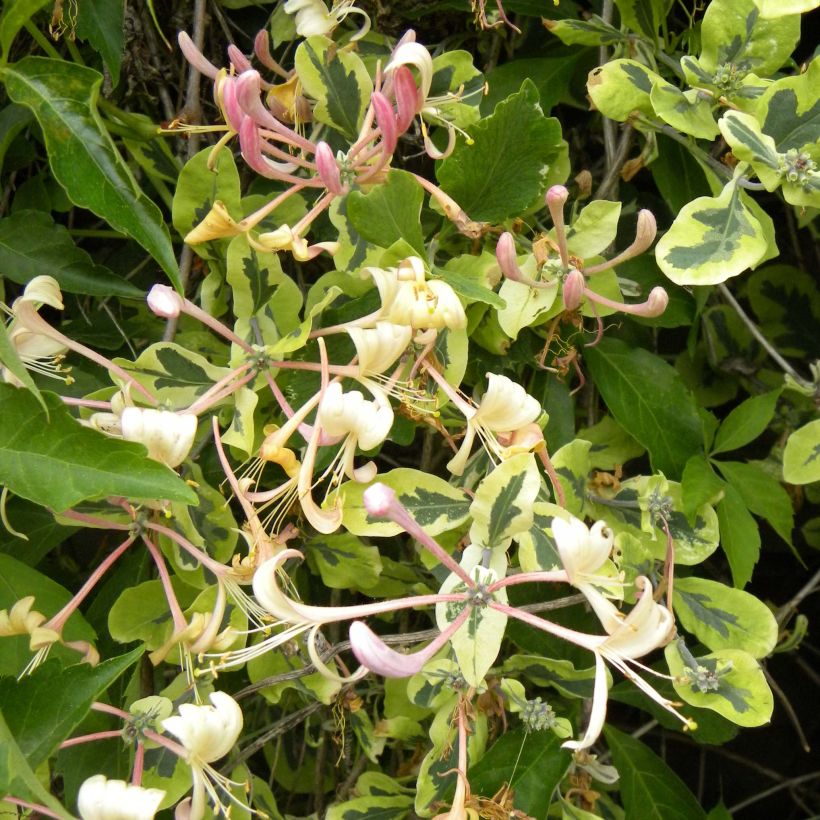

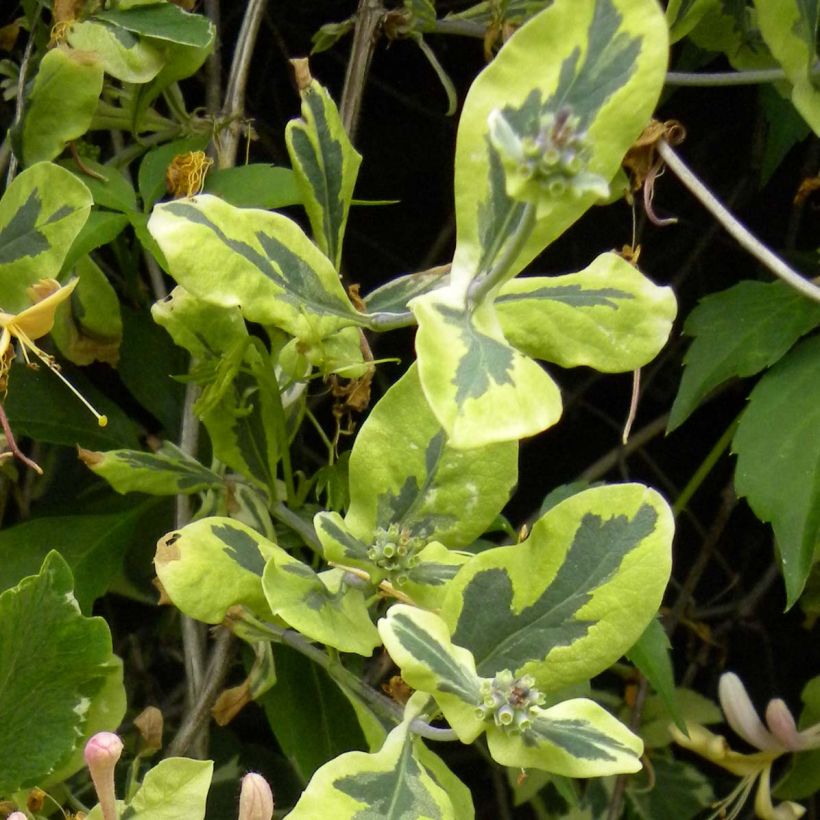

Plant habit
Flowering
Foliage
Botanical data
Lonicera
caprifolium var. Italica
Harlequin 'Sherlite'
Caprifoliaceae
Italian Honeysuckle, Italian Woodbine
Cultivar or hybrid
Other Honeysuckle
Planting and care
Honeysuckles thrive in any good deep garden soil, which is not too chalky on the surface, in a gently sunny exposure. Practice a cleaning pruning every year. However, it is possible to severely prune an old subject to completely renew its framework. This restoration will be done over one or two years. Honeysuckles are very hardy climbing plants, ideal for quickly dressing up a wall or a pergola. Provide them with support, they will cling on their own. We love them for their long flowering period and their wonderful fragrance. Our advice: Install it near your terrace to fully enjoy its intoxicating scent, which becomes more pronounced in the morning and evening. Their enemies are aphids, which can be eliminated with pyrethrin, as well as powdery mildew. To limit the risk of disease, it is useful to ventilate the branches of the honeysuckle well and to place it in an open location. Preventive or curative treatments with Bordeaux mixture are effective.
Planting period
Intended location
Care
-
, onOrder confirmed
Reply from on Promesse de fleurs
Foolproof climbers
Haven't found what you were looking for?
Hardiness is the lowest winter temperature a plant can endure without suffering serious damage or even dying. However, hardiness is affected by location (a sheltered area, such as a patio), protection (winter cover) and soil type (hardiness is improved by well-drained soil).

Photo Sharing Terms & Conditions
In order to encourage gardeners to interact and share their experiences, Promesse de fleurs offers various media enabling content to be uploaded onto its Site - in particular via the ‘Photo sharing’ module.
The User agrees to refrain from:
- Posting any content that is illegal, prejudicial, insulting, racist, inciteful to hatred, revisionist, contrary to public decency, that infringes on privacy or on the privacy rights of third parties, in particular the publicity rights of persons and goods, intellectual property rights, or the right to privacy.
- Submitting content on behalf of a third party;
- Impersonate the identity of a third party and/or publish any personal information about a third party;
In general, the User undertakes to refrain from any unethical behaviour.
All Content (in particular text, comments, files, images, photos, videos, creative works, etc.), which may be subject to property or intellectual property rights, image or other private rights, shall remain the property of the User, subject to the limited rights granted by the terms of the licence granted by Promesse de fleurs as stated below. Users are at liberty to publish or not to publish such Content on the Site, notably via the ‘Photo Sharing’ facility, and accept that this Content shall be made public and freely accessible, notably on the Internet.
Users further acknowledge, undertake to have ,and guarantee that they hold all necessary rights and permissions to publish such material on the Site, in particular with regard to the legislation in force pertaining to any privacy, property, intellectual property, image, or contractual rights, or rights of any other nature. By publishing such Content on the Site, Users acknowledge accepting full liability as publishers of the Content within the meaning of the law, and grant Promesse de fleurs, free of charge, an inclusive, worldwide licence for the said Content for the entire duration of its publication, including all reproduction, representation, up/downloading, displaying, performing, transmission, and storage rights.
Users also grant permission for their name to be linked to the Content and accept that this link may not always be made available.
By engaging in posting material, Users consent to their Content becoming automatically accessible on the Internet, in particular on other sites and/or blogs and/or web pages of the Promesse de fleurs site, including in particular social pages and the Promesse de fleurs catalogue.
Users may secure the removal of entrusted content free of charge by issuing a simple request via our contact form.
The flowering period indicated on our website applies to countries and regions located in USDA zone 8 (France, the United Kingdom, Ireland, the Netherlands, etc.)
It will vary according to where you live:
- In zones 9 to 10 (Italy, Spain, Greece, etc.), flowering will occur about 2 to 4 weeks earlier.
- In zones 6 to 7 (Germany, Poland, Slovenia, and lower mountainous regions), flowering will be delayed by 2 to 3 weeks.
- In zone 5 (Central Europe, Scandinavia), blooming will be delayed by 3 to 5 weeks.
In temperate climates, pruning of spring-flowering shrubs (forsythia, spireas, etc.) should be done just after flowering.
Pruning of summer-flowering shrubs (Indian Lilac, Perovskia, etc.) can be done in winter or spring.
In cold regions as well as with frost-sensitive plants, avoid pruning too early when severe frosts may still occur.
The planting period indicated on our website applies to countries and regions located in USDA zone 8 (France, United Kingdom, Ireland, Netherlands).
It will vary according to where you live:
- In Mediterranean zones (Marseille, Madrid, Milan, etc.), autumn and winter are the best planting periods.
- In continental zones (Strasbourg, Munich, Vienna, etc.), delay planting by 2 to 3 weeks in spring and bring it forward by 2 to 4 weeks in autumn.
- In mountainous regions (the Alps, Pyrenees, Carpathians, etc.), it is best to plant in late spring (May-June) or late summer (August-September).
The harvesting period indicated on our website applies to countries and regions in USDA zone 8 (France, England, Ireland, the Netherlands).
In colder areas (Scandinavia, Poland, Austria...) fruit and vegetable harvests are likely to be delayed by 3-4 weeks.
In warmer areas (Italy, Spain, Greece, etc.), harvesting will probably take place earlier, depending on weather conditions.
The sowing periods indicated on our website apply to countries and regions within USDA Zone 8 (France, UK, Ireland, Netherlands).
In colder areas (Scandinavia, Poland, Austria...), delay any outdoor sowing by 3-4 weeks, or sow under glass.
In warmer climes (Italy, Spain, Greece, etc.), bring outdoor sowing forward by a few weeks.

































